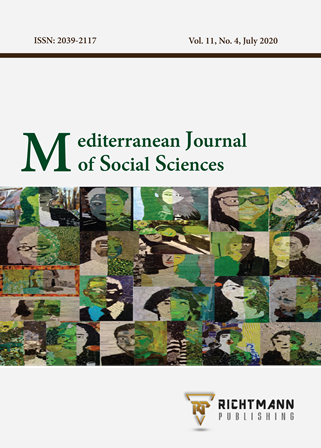Do Members of Disadvantaged Groups Possess a Motivation of Favouritism towards Advantaged Groups?
DOI:
https://doi.org/10.36941/mjss-2020-0041Abstract
There are several studies suggesting that disadvantaged groups display positive attitudes towards advantaged groups. System Justification Theorists have conceptualised that attitudes as out-group favouritism, whereas Social Identity Theorists have described it as the attitude of members identifying with the advantaged group, reflecting in-group favouritism. As the level of participants’ identification with both groups is not measured in those studies, it is not clear enough which theory they support. This study, conducted with 145 people living in Turkey and define themselves as Kurdish, aims to examine the attitudes of the participants towards the disadvantaged Kurdish in-group and the advantaged Turkish out-group in terms of the participant’s level of identification with both groups and the identity management strategies (individual mobility, social competition, superordinate re-categorisation) followed by the participants. For this purpose, the participants dividing into three clusters depending on their level of identification with both groups were compared in terms of their intergroup attitudes and the strategies they followed. The results indicated that the participants who identified with the Turkish group on a higher level had favouritism towards Turks and followed the individual mobility and superordinate re-categorisation strategies. On the other hand, the participants who identified with the Kurdish group on a higher level had favouritism towards Kurds and followed the social competition strategy. These results support Social Identity Theory, suggesting that disadvantaged group members’ positive attitudes towards advantaged groups reflect in-group favouritism, not out-group favouritism. This is because they identify themselves through advantaged groups as a result of certain strategies.
Downloads
Downloads
Published
Issue
Section
License
This work is licensed under a Creative Commons Attribution-NonCommercial 4.0 International License.











